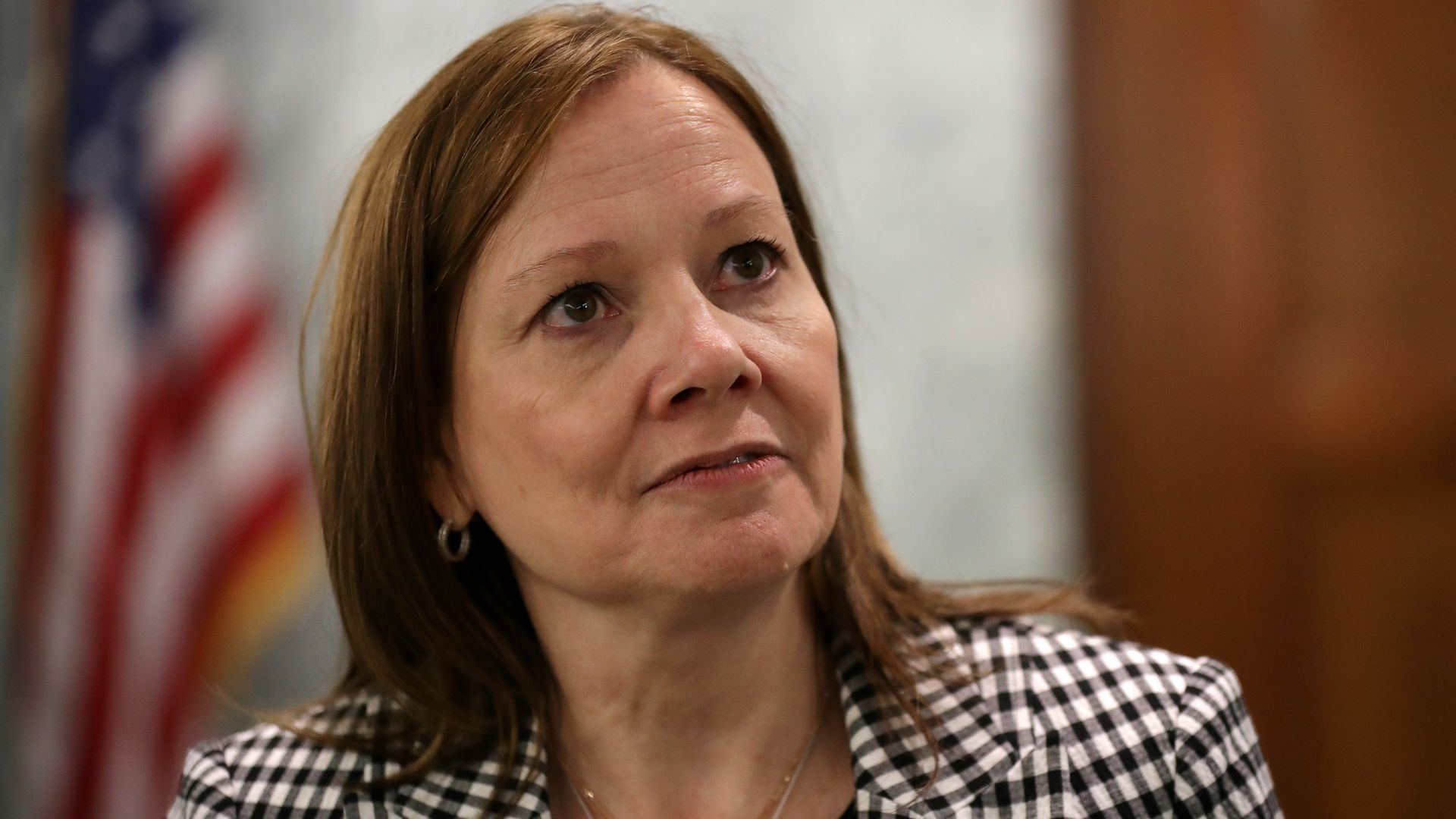GM's eyes are wide open on Nikola partnership
Add Axios as your preferred source to
see more of our stories on Google.

GM CEO Mary Barra. Photo by Chip Somodevilla/Getty Images
This week General Motors found itself having to defend a deal in which it can't lose — illustrating how distorted the markets have become over newly public electric vehicle companies.
Catch up quick: On Sept. 8, GM announced a strategic partnership with Nikola Motor Co., a high-flying startup with ambitions to build electric and hydrogen fuel-cell trucks, but no revenue. Nikola shares soared 40% on the news, and GM climbed too.
- Two days later, Hindenburg Research, issued a scathing report accusing Nikola and founder Trevor Milton of fraud. Nikola called it a "hit job" by a short-seller and asked the SEC to investigate.
Lost in the entire flap was how favorable the deal is for GM, which has cutting-edge technology and ambitions of its own.
- GM put up no cash but received an 11% stake in Nikola (worth $2 billion the day of the deal, but only $1.4 billion after the report).
- Nikola will pay GM $700 million to manufacture up to 50,000 Badger electric pickup trucks (and a future fuel-cell version), production that will help GM achieve economies of scale.
- GM keeps 80% of the regulatory emissions credits from sales of the Badger and can bid on the sale of the remaining credits — helpful in offsetting GM's continued sales of gasoline-powered trucks and SUVs.
- GM will also supply the fuel cell systems to Nikola's future big semi-trucks.
Between the lines: By agreeing to provide batteries and fuel-cell technology for future Nikola vehicles and build the Badger pickup truck at a GM factory, GM gets to share the cost of technologies it was already developing. (The same is true of its partnership with Honda.)
GM CEO Mary Barra said the automaker is standing by Nikola, despite the controversy.
- "The company has worked with a lot of different partners and we’re a very capable team that has done the appropriate diligence," Barra said during a conference with RBC Capital Markets on Monday, according to CNBC.
What to watch: The Justice Department has reportedly joined U.S. securities regulators in examining allegations that Nikola misled investors about its own technology capabilities, per the Wall Street Journal.
- As for GM and Barra, the risk is minimal.
- "The way the deal’s structured, she's got nothing to lose and everything to gain," said Guidehouse Insights analyst Sam Abuelsamid.
The bottom line: If Nikola goes up in smoke, GM's 11% stake could be worthless, it's true. But all it would mean is a momentary black eye for GM.
- And if it works out, GM gets to accelerate the race to the future.
Go deeper: Electric vehicle startup Nikola reportedly facing 2 federal inquiries
